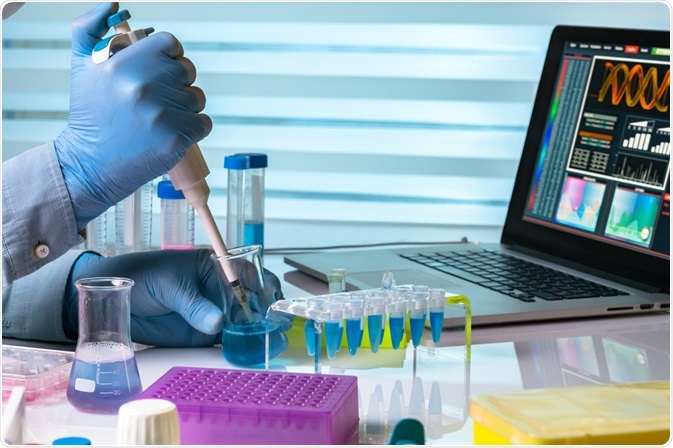Definition of Analytical Chemistry
Analytical chemistry is a branch of chemistry that focuses on the identification, quantification, and separation of chemical compounds. It involves the development and application of techniques and instruments to analyze and understand the composition, structure, and properties of matter. Analytical chemists use various methods, such as spectroscopy, chromatography, electrochemistry, and mass spectrometry, to accurately measure and analyze samples. This field plays a crucial role in fields like environmental monitoring, pharmaceutical analysis, forensic science, and quality control in manufacturing industries.
Importance of Analytical Chemistry in Chemistry
Analytical chemistry plays a crucial role in the field of chemistry. It involves the study and application of various techniques and methods to separate, identify, and quantify chemical components in a sample. Here are some of the important reasons why analytical chemistry is vital in the broader field of chemistry:
1. Quality control: Analytical chemistry is used to ensure the quality and purity of substances in various industries such as pharmaceuticals, food and beverages, and environmental monitoring. It helps identify impurities, contaminants, and adulterants, ensuring that products meet specific standards and regulations.
2. Drug development: Analytical chemistry is essential in the development and production of pharmaceutical drugs. It is used to determine the composition and potency of drug formulations, ensuring their safety, efficacy, and stability.
3. Environmental analysis: Analytical chemistry is crucial for monitoring and measuring pollutants in the environment. It allows scientists to detect and quantify harmful substances in air, water, soil, and other environmental matrices. This information helps in understanding the impact of human activities on the environment and in making informed decisions about resource management and pollution control.
4. Forensic analysis: Analytical chemistry plays a vital role in forensic science. It helps in the identification and analysis of trace evidence, such as DNA, drugs, and toxins, which can be used in criminal investigations and legal proceedings. Analytical techniques can also be employed to determine the authenticity of documents and artworks.
5. Research and development: Analytical chemistry is indispensable in conducting scientific research and developing new chemical compounds and materials. It enables researchers to characterize and understand the properties and behavior of substances, leading to the discovery of new materials, drugs, and technologies.
6. Safety and security: Analytical chemistry is employed in various safety and security applications. It is used to detect and analyze hazardous substances, explosives, and chemical weapons. It also plays a crucial role in public health by analyzing food, water, and air for contaminants that may pose health risks.
Overall, analytical chemistry provides essential tools and techniques for the identification, separation, and quantification of chemical compounds in various applications. It contributes to the advancement of knowledge, innovation, and the improvement of our quality of life.
Techniques and Methods Used in Analytical Chemistry
There are several techniques and methods used in Analytical Chemistry to analyze and quantify chemical substances. Some of the commonly used techniques are:
1. Spectroscopy: This technique involves the study of the interaction between matter and electromagnetic radiation. It includes various methods such as UV-Visible spectroscopy, infrared spectroscopy, atomic absorption spectroscopy, and nuclear magnetic resonance spectroscopy.
2. Chromatography: This technique separates a mixture into its individual components based on their differences in partitioning between a mobile phase and a stationary phase. Popular chromatographic methods include gas chromatography (GC) and high-performance liquid chromatography (HPLC).
3. Mass spectrometry: This technique determines the mass-to-charge ratio of ions to identify and quantify compounds. Mass spectrometry is commonly used in conjunction with other techniques such as gas chromatography or liquid chromatography.
4. Electrochemistry: This technique involves the study of chemical reactions that involve the transfer of electrons. It includes methods such as potentiometry, voltammetry, and coulometry, which provide information about the electrochemical behavior of substances.
5. Titration: This method involves the controlled addition of a solution of known concentration (titrant) to react with a solution of unknown concentration (analyte) to determine the concentration of the analyte. Various types of titrations include acid-base titrations, redox titrations, and complexometric titrations.
6. Thermal analysis: This technique involves the measurement of physical and chemical properties of a substance as a function of temperature. Common thermal analysis methods include differential scanning calorimetry (DSC) and thermogravimetric analysis (TGA).
7. Microscopy: This method uses microscopic techniques to examine and characterize materials at the microscopic level. Techniques such as optical microscopy, electron microscopy, and scanning probe microscopy are commonly used in analytical chemistry.
These are just a few examples of the techniques and methods used in Analytical Chemistry. The choice of method depends on the nature of the sample, the type of analysis required, and the desired level of sensitivity and accuracy.
Applications of Analytical Chemistry
Analytical chemistry plays a crucial role in various areas of chemistry. Some of the key applications of analytical chemistry in the field of chemistry include:
1. Environmental analysis: Analytical techniques are used to monitor and analyze pollutants in air, water, and soil. This information is vital for environmental protection and regulation.
2. Pharmaceutical analysis: Analytical techniques are employed to ensure the quality, safety, and efficacy of pharmaceutical products. This includes the identification and quantification of active ingredients, as well as the detection and quantification of impurities.
3. Food analysis: Analytical chemistry is used to analyze the quality, safety, and nutritional composition of food products. Techniques such as chromatography, spectroscopy, and mass spectrometry are used for food authentication, detecting contaminants, and assessing nutritional content.
4. Forensic analysis: Analytical chemistry plays a crucial role in forensic investigations, particularly in the analysis of illegal drugs, trace evidence, toxicology, and arson investigation. Techniques such as gas chromatography, mass spectrometry, and DNA analysis are commonly used in forensic analysis.
5. Materials analysis: Analytical chemistry is used to characterize the chemical composition and structure of various materials, such as metals, ceramics, and polymers. This information is critical for quality control, materials design, and failure analysis.
6. Biochemical analysis: Analytical techniques are used to study and quantify biological molecules such as proteins, nucleic acids, and metabolites. This helps in understanding biological processes, disease diagnosis, and drug development.
7. Process analysis: Analytical chemistry is employed in manufacturing and industrial processes to monitor and control chemical reactions, optimize process conditions, and ensure product quality and safety.
8. Water analysis: Analytical techniques are used to assess the quality of water for drinking, industrial use, and environmental monitoring. Parameters such as pH, dissolved oxygen, heavy metals, and organic pollutants are quantified using analytical chemistry methods.
These are just a few examples of the broad applications of analytical chemistry in the field of chemistry. The development and application of analytical techniques continue to advance, enabling scientists to obtain accurate and precise data for various chemical analyses.
Future Developments in Analytical Chemistry
In the field of Analytical Chemistry, there are several future developments that hold great promise and have the potential to revolutionize various aspects of the field. Some of these developments include:
1. Miniaturization and automation: The development of miniaturized analytical instruments, such as lab-on-a-chip devices, has gained significant attention. These devices allow for the integration of multiple analytical techniques onto a single chip, reducing sample and reagent volumes, increasing analysis speed, and enabling high-throughput analysis. Furthermore, the automation of sample preparation, data acquisition, and analysis processes will further enhance the efficiency and reliability of analytical chemistry.
2. Advanced spectroscopic techniques: There is a growing interest in developing and refining spectroscopic techniques for analytical applications. Techniques such as Raman spectroscopy, terahertz spectroscopy, and multi-dimensional spectroscopy offer improved sensitivity, selectivity, and speed of analysis. Additionally, the development of novel probes and detectors will expand the capabilities of spectroscopy in various fields, including environmental monitoring, biomedical analysis, and materials characterization.
3. Mass spectrometry advancements: Mass spectrometry, a powerful technique for identifying and quantifying molecules, is undergoing significant developments. High-resolution mass spectrometry is becoming more accessible, enabling better separation and identification of compounds in complex samples. The use of ambient ionization techniques is also gaining attention, allowing direct analysis of samples without extensive sample preparation. Further developments in tandem mass spectrometry and ion mobility spectrometry will enhance the sensitivity and specificity of analysis.
4. Data analysis and chemometrics: With the increasing volume and complexity of analytical data, there is a growing need for advanced data analysis and chemometric tools. Machine learning algorithms, artificial intelligence, and statistical modeling techniques are being applied to effectively process, interpret, and extract relevant information from large datasets. These tools will assist in pattern recognition, classification, and prediction, leading to more accurate and efficient analytical results.
5. Sensor technologies: The development of novel sensor technologies is a rapidly advancing area in analytical chemistry. Sensor devices that can detect and quantify specific analytes with high sensitivity and selectivity are being developed for various applications, such as environmental monitoring, food analysis, and medical diagnostics. These sensors can be based on different principles, including electrochemical, optical, and nanomaterial-based mechanisms.
Overall, the future developments in analytical chemistry will focus on improving analytical performance, increasing automation, enhancing data analysis capabilities, and expanding application areas. These advancements will enable faster, more accurate, and more reliable analysis, leading to better understanding of complex chemical systems and solving real-world analytical challenges.

I am a passionate Chemistry teacher committed to dedicating my life to help students explore the beauty and significance of chemistry. With over 10 years of teaching experience, I focus on imparting knowledge while encouraging curiosity and deep understanding of the subject.

